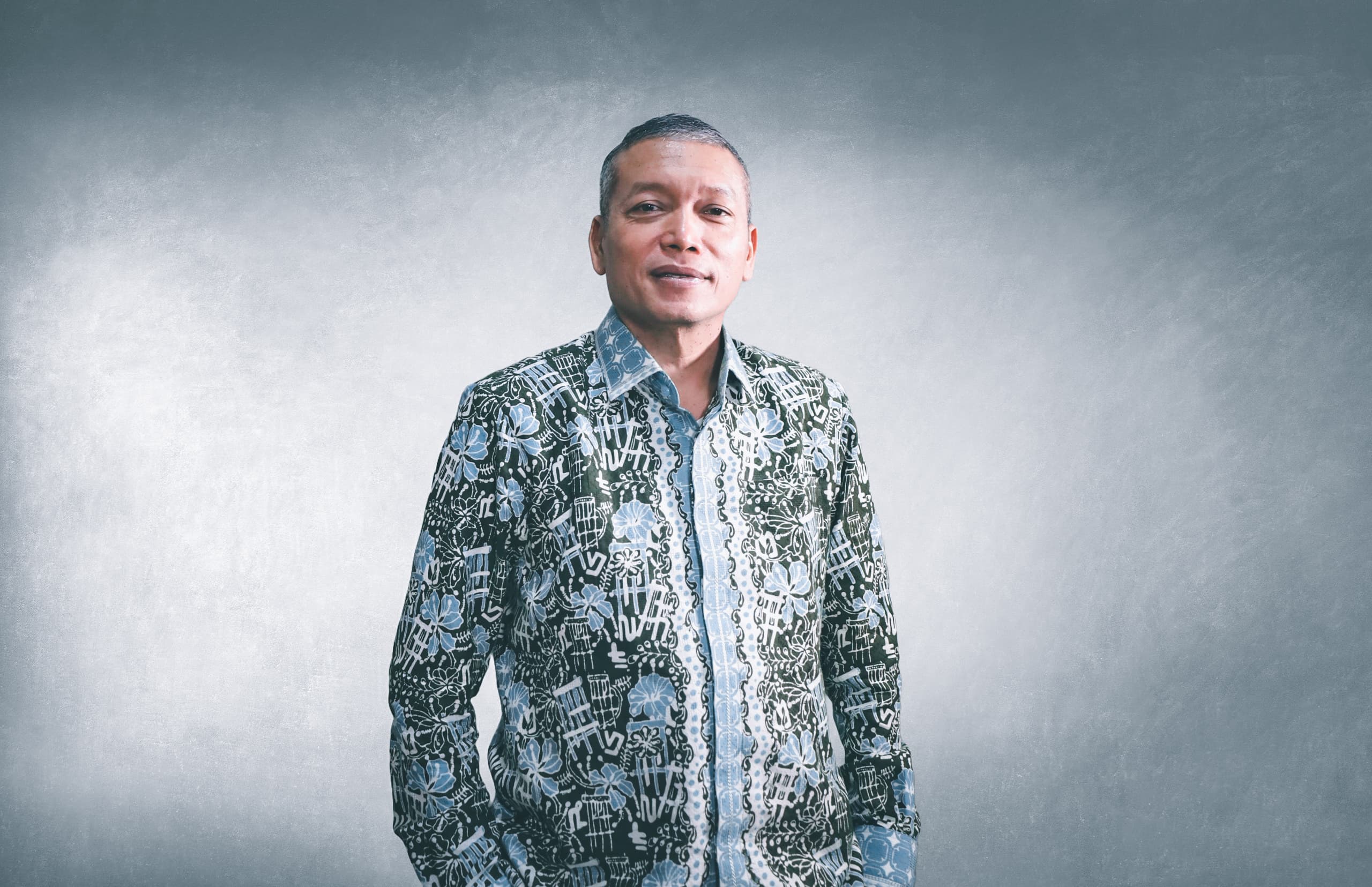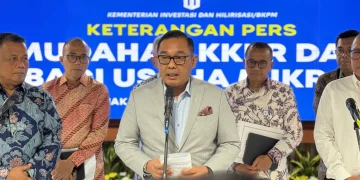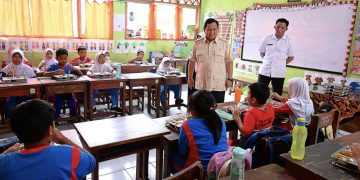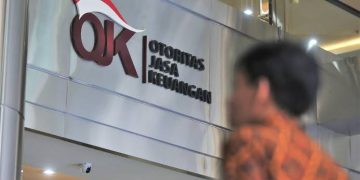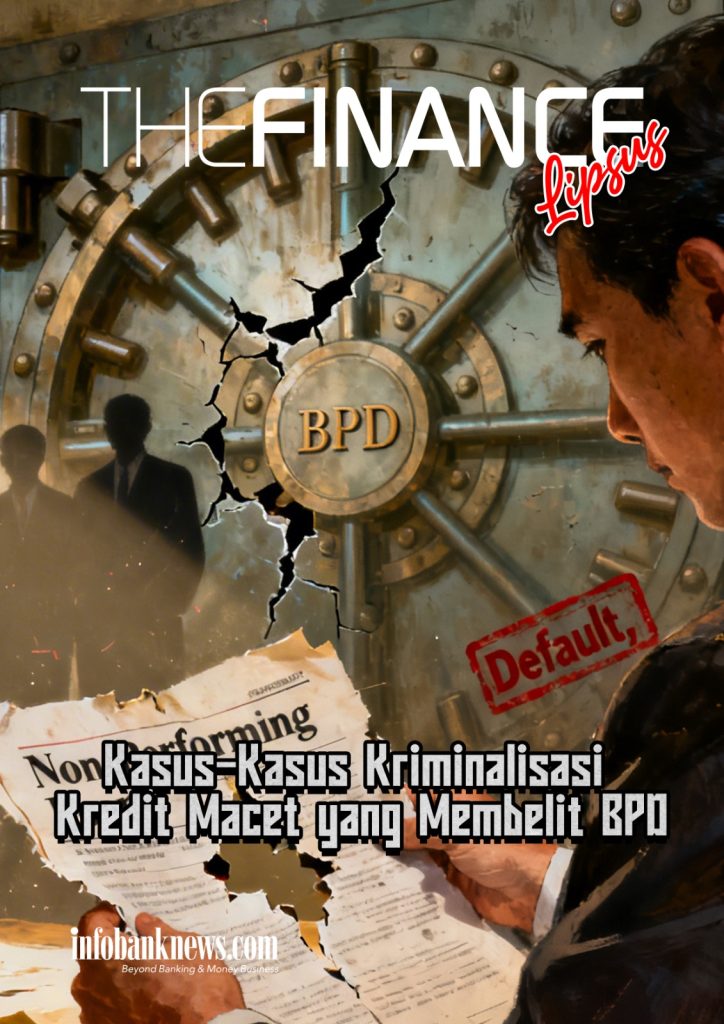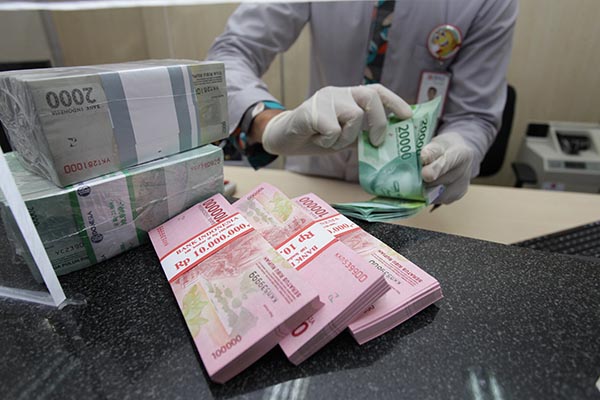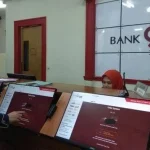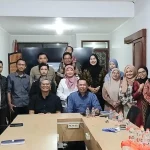By Eko B. Supriyanto, Chairman of Infobank Media Group
ACTUALLY, Indonesia’s economic growth is KW2. For almost 10 years now, our economic growth has been of poor quality. In fact, some say, Indonesia’s economic growth is supported by debt. The next Prabowo government must correct Jokowi’s economic policies that are not pro-employment.
Indonesia is dear to God. Check it out! Whether there is an economic storm in the world or not, whether there is a war or not. Also, whether we want to increase debt or not, no matter how many times we reshuffle the ministerial ranks, no matter how much social assistance is rolled out, Indonesia’s economic growth remains in the range of 4.9 -5.3 percent.
The author’s term is Indonesia bolone Gusti Allah. It is a friend of God, and because it is a friend, it continues to be loved by God. It is blessed with growth, even though it is of low quality, or KW2, as a friend said. The growth is from the consumption side. Growth is driven by debt, which continues to climb to Rp8,338 trillion. Debt continues to rise from the 2014 position of Rp2,600 trillion. More than three times.
Jokowi’s administration is entering its final chapter. However, Jokowi still appears to be “cawe-cawe”. The cabinet reshuffle was carried out, and let the economy move on its own. If in SBY’s era it was known as auto pilot, while in Jokowi’s era the term is auto rejected – all problems solve themselves. For nine years, the economy has not grown by 7 percent, as Jokowi promised in his campaign.
The question is, will God still bless the Indonesian economy with growth, or will it still grow, but with difficulty and with lower quality, from KW2 to KW3? This is the momentum for the Prabowo government. It must be able to transform into a quality economy that can absorb labor. Young people must work to avoid falling into the middle class trap. So that the middle class does not fall into poverty.
The Kompas report states that Gen Z (born 1997-2012) is finding it increasingly difficult to find work in the formal sector. Over the past 15 years, labor absorption in the formal sector has continued to shrink. Gen Z is also finding it more difficult to find work in the informal sector compared to previous generations. In the second period of Jokowi’s regime, it seems that jobs are getting narrower.
Just look at the data from the Central Statistics Agency (BPS). During the 2009-2014 period, labor absorption in the formal sector was 15.6 million people. The number decreased to 8.5 million people in the 2014-2019 period, and fell sharply in the 2019-2024 period to 2 million people. Not only that. The waiting time for work is also getting longer. In short, after graduating from school or college, they do not immediately work, but still wait relatively long.
Meanwhile, layoffs are also becoming an epidemic. According to data from the Ministry of Manpower (Kemenaker), 45,000 people have been laid off. However, this number is doubtful, because many companies do not report. On the other hand, the prices of daily necessities continue to rise unaffordably. Food inflation is still high. Life has become cramped for the lower middle class, who spend more on food.
In the midst of economic growth supported by debt, according to Infobank Institute’s records, there are three horrors in the economy. One, high interest rates and inflation that occur globally. This horror will be over if the United States (US) does not continue the trend of high interest rates. However, it is possible that this interest rate policy will end at the end of this year. Bank Indonesia (BI) will almost certainly adjust this interest rate cut. Of course, if the rupiah exchange rate can be controlled.
Two, trade wars and a slowing world economy. These two things have a big effect on the Indonesian economy. In addition to imports that are still large, of course exports are also difficult to do because of the existence of world trade blocks.
According to Sri Mulyani Indrawati, Indonesia’s Minister of Finance, by 2023, there will be 3,000 trade restrictions in place. In fact, in 2019, the beginning of the trade war, restrictions were only placed on 982 types of goods. Restrictions are expected to increase again this year.
Three, climate change is overheating the Indonesian economy. Climate change is reorganizing the world economy.
Read also: Prabowo Government’s Strategy to Boost Indonesia’s Economy to 8 Percent
The Prabowo-Gibran government must change the course of development. If it still uses Jokowi’s way of appearing to do good to the people with food distribution programs, it will not change the number of labor absorption. The style of distributing groceries only shows the side of a good person. But, as president, he should have the responsibility to make policies so that the economy does not grow with KW2 quality.
Don’t let Indonesia’s economy grow with KW2 quality. Therefore, while Indonesia is still loved by God, the Prabowo government must correct all Jokowi’s policies whose results do not match the promises. In fact, the promise was 7 percent economic growth. Do not let the poor continue to be entertained with online gambling (judol) and trapped in debt.
The Prabowo government must change the course of economic development. Stop the way Jokowi “breeds” the poor for his political interests. The people are already living very hard. (*)


